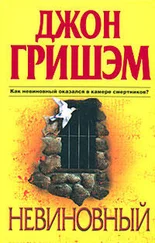Jake still dreamed of changing this, and at the age of thirty-seven he was trying to establish a reputation as a lawyer who gambled and got verdicts. Without a doubt his most glorious moment had been the not-guilty verdict for Carl Lee Hailey five years earlier, and he had been certain in its aftermath that the big cases would find their way to his door. They had not. He still threatened to try every dispute, and this worked well, but the rewards were still paltry.
The Smallwood case, though, was different. It had the potential of being the biggest civil case in the county’s history, and Jake was the lead counsel. He had filed the lawsuit thirteen months earlier and had since spent half his time working on it. He was now ready for the trial and yelling at the defense lawyers for a date.
Harry Rex had not mentioned the role of the county’s part-time public defender, and with good reason. The current P.D. was a bashful rookie whose early job approval ratings were about as low as they could get. He took the job because no one else wanted it, and because the position had been vacant for a year, and because the county reluctantly agreed to increase the salary to $2,500 a month. No one expected him to survive another year. He had yet to try a case all the way to a jury’s verdict and showed no interest in doing so. And, most important, he had never even watched a capital murder trial.
Not surprisingly, Carla immediately felt sympathy for the woman. Even though she had liked Stu Kofer, she also knew that some off-duty cops could behave as badly as anyone. And if domestic violence was a factor, the facts would only become more complicated.
But she was wary of another high-profile, controversial case. For three years after the trial of Carl Lee Hailey, the Brigance family had lived with a deputy parked in front of their house at night, and threatening phone calls, and hateful glares from strangers in stores. Now, in another nice home and with that case even further behind them, they were slowly adjusting to a normal life. Jake still carried a registered gun in his car, which she frowned on, but the surveillance was gone. They were determined to enjoy the present, plan for the future, and forget the past. The last case Carla wanted was one that might attract headlines.
As they were chatting quietly, Miss Hanna appeared in her pajamas, sleepy-eyed and clutching, still, her favorite stuffed cub, one that she had never slept without. The cub was threadbare and far past its useful shelf life, and Hanna was nine years old and needed to move on, but a serious discussion about such a transition was being postponed. She crawled into her father’s lap and closed her eyes again. Like her mother, she preferred a quiet entry into the morning with as little noise as possible.
Her parents stopped talking about the legal stuff and switched to Hanna’s Sunday school lesson, one she had not yet read. Carla disappeared and returned with the study guide, and Jake began reading about Jonah and the Whale, one of his least favorite Bible stories. Hanna wasn’t impressed with it either and seemed to doze. Carla busied herself in the kitchen with breakfast—oatmeal for Hanna, poached eggs and wheat toast for the adults.
They ate quietly and enjoyed the peaceful moments together. Cartoons on television were usually prohibited on Sundays, and Hanna didn’t think to ask. She ate little, as usual, and reluctantly left the table for a bath.
At 9:45, they were dressed in their Sunday finest and headed for worship at the First Presbyterian Church. Once loaded in the car, Jake couldn’t find his sunglasses, and hustled back inside, turning off the ever-present alarm system as he entered.
The phone on the kitchen wall started ringing and the caller ID flashed a number—same area code but a different prefix that looked familiar. Could be Van Buren County, next door. No name, caller unknown, but Jake had a hunch. He stared at the phone, either unable or unwilling to answer, because something told him not to. Besides Harry Rex, who dared call on a peaceful Sunday morning? Lucien Wilbanks maybe, but it wasn’t him. It must be important and it must be trouble, and for seconds he just stood there gawking at the phone, transfixed. After the max of eight rings, he waited for the recording light to blink and punched a button. A familiar voice said: “Good morning, Jake, it’s Judge Noose. I’m at home in Chester and headed to church. You probably are too and I’m sorry to disturb, but there’s an urgent matter in Clanton and I’m sure you’ve heard about it by now. Please call me as soon as possible.” And the line went dead.
He would remember that moment for a long time—standing in his kitchen, dressed in a dark suit as if filled with confidence, and staring at the telephone because he was too afraid to answer it. He could not remember ever feeling like such a coward and vowed that it would never happen again.
He set the alarm, locked the door, and walked to the car with a big fake smile for his girls and got in. As he backed out of the drive, Hanna asked, “Where are your sunglasses, Daddy?”
“Oh, I couldn’t find them.”
“They were on the counter by the mail,” Carla said.
He shook his head as if it didn’t matter and said, “Didn’t see them and we’re running late.”
—
THE LESSON IN the men’s Bible class was a continuation of the study of Paul’s letter to the Galatians, but they never got around to it. A policeman had been murdered, a local boy whose parents and grandparents were from the county, along with other family members scattered about. Much of the discussion was about crime and punishment, with the mood running strongly in favor of swift retribution, regardless of how young the killer might be. Did it really matter if he was sixteen or sixty? It certainly didn’t matter to Stu Kofer, whose stock seemed to rise by the hour. A bad kid pulling a trigger can do just as much damage as a serial killer. There were three lawyers in the class, and the other two held forth with no shortage of opinions. Jake was passive but deep in thought, and tried not to appear troubled.
His Presbyterian brethren were considered a bit more tolerant than the fundamentalists down the street—the Baptists and Pentecostals who loved the death penalty—but judging by the thirst for vengeance in the small classroom Jake figured the boy who killed Stu Kofer was headed to the gas chamber at Parchman.
He kept trying to dismiss it all, because it would be someone else’s problem. Right?
At 10:45, with the pipe organ roaring away and calling all to worship, Jake and Carla made their way down the aisle to the fourth pew from the front, right side, and waited for Hanna to come bouncing in from her Sunday school class. Jake chatted with old friends and acquaintances, most of whom he rarely saw outside of church. Carla said hello to two of her students. First Presbyterian averaged 250 congregants for the morning service, and it seemed as if most were milling around and exchanging greetings. There was a lot of gray hair, and Jake knew their minister was concerned about the flagging popularity of worship among younger families.
Old Mr. Cavanaugh, a perpetual grouch who most people tried to avoid but who wrote bigger checks than any other member, grabbed Jake by the arm and said, much too loudly, “You ain’t gettin’ involved with that boy who killed our deputy, are you?”
Oh, the retorts he would love to use. First: Why can’t you ever mind your own business, you cranky old bastard? Second: You and your family have never thrown me a dime in legal work, so why are you now concerned with my law practice? Third: How can the case possibly affect you?
Instead, Jake looked him square in the eye and without a trace of a smile replied, “Which deputy are you talking about?”
Читать дальше












![Джон Гришэм - Апелляция [Фейк]](/books/403002/dzhon-grishem-apellyaciya-fejk-thumb.webp)